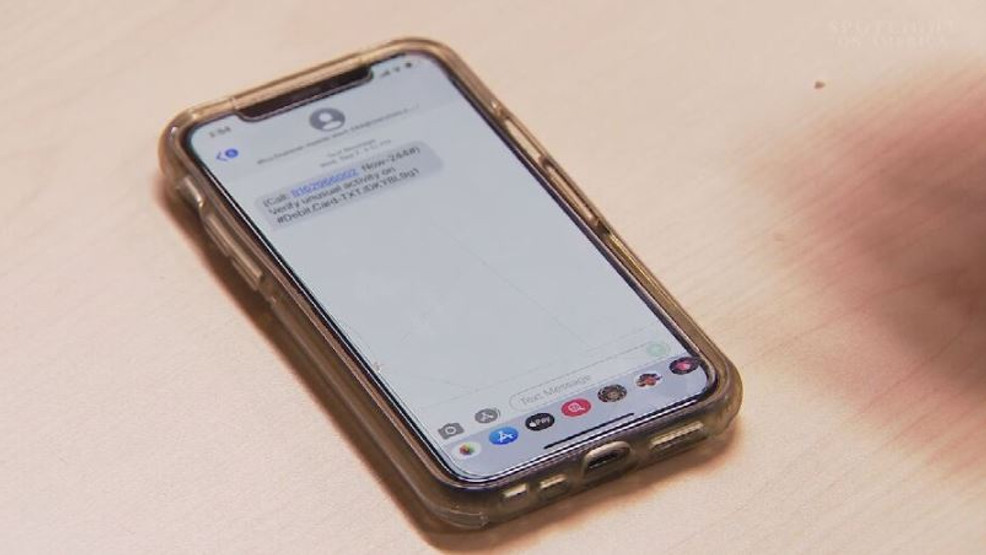Now
52
Sun
60
Mon
64
by Herb Weisbaum, The ConsumerMan
TOPICS:
SEATTLE — If you receive a text message requesting payment for outstanding toll charges, assume it’s a scam.
The volume of these fake messages has surged since Checkbook first warned about them in June 2024, when the FBI warned it had received thousands of complaints from at least three states.
RELATED | Unpaid toll text scam tries to swindle Washingtonians out of finances, personal info
The scam has now spread “coast to coast,” according to a consumer alert posted earlier this year from the Federal Trade Commission.
These bogus messages are part of a widespread “smishing” attack, which the FBI describes as a “social engineering attack using fake text messages to trick people into downloading malware, sharing sensitive information, or sending money to cybercriminals.” The fraudsters are using a “shotgun” approach, targeting anyone with a smartphone—even those who don’t own a car, have a driver’s license, or own a toll pass.
These texts, like this one posted on Reddit, are not from a legitimate tolling agency:
“These smishing texts are designed to get you to click on a link that takes you to copycat websites that mimic the authentic sites for paying a toll,” said John Breyault, who runs the National Consumers League’s Fraud.org website. “These bogus payment portals are designed to trick you into giving the fraudsters money you don’t owe and your personal information that can be used for identity theft.”
My wife and I recently received one of these bogus texts that was sent from an area code in West Virginia. (Our cars haven’t left Washington state in two years!) The latest batch of toll alerts is more threatening than the original ones. The one we received said: “Failure to pay on time may result in additional fees or loss of your license. In severe cases, it may also damage your DMV record and lead to legal action.”
Following the recent spike in complaints, several states across the country have issued alerts about this scam.
Washington state’s Good To Go! toll program has been flooded with calls about these phony collection notices. Their call center typically gets 2,000 calls a day, a spokesperson told Checkbook. In March, it received about 10,000 calls a day, and most of those calls were about these scam text messages.
The links in smishing text messages don’t always correspond to the name of the tolling authority in that specific state—a red flag.
For example, a Checkbook subscriber in Oregon received this fake collection notice, supposedly from Oregon Toll Services, that contained a link to SunPass, the prepaid tolling program in Florida. And note the misspelling in the URL, an extra “s” after sun.
RELATED | More financial tips, tricks, and advice from The ConsumerMan
Scammers seem focused on using text messages to lure their victims, but in some states, Checkbook was told, they’re also using email and robocalls.
If you get a message that says you owe unpaid tolls, even if it looks legitimate, don’t click any links or respond in any way. It’s too risky.
Instead, check with the state’s tolling agency using a website or phone number you know is real—not what’s in the text.
Red Flag: Some tolling authorities will text drivers who’ve registered for the program information about their accounts, such as you have a low balance or your credit card on file is about to expire. They’d never tell you to click a link in the text and pay now.
If you receive one of these bogus messages or have fallen victim to the hoax, report it to the FBI, Federal Trade Commission, or Fraud.org (which shares reports it receives with hundreds of law enforcement agencies throughout North America).
If you provided the scammers with any financial information, take steps immediately to secure those accounts. Dispute any fraudulent charges made to your credit card.
You can also alert your wireless carrier by using your phone’s “report junk” button or by forwarding the message to 7726 (SPAM). This will help the phone company better detect and block fraudulent messages on its network. Then, delete that message.
From Checkbook: Protect Yourself from Identity Theft and Other Fraud
From FTC: Impersonation Scams: Not What They Used to Be
From FCC: Avoid the Temptation of Smishing Scams
Consumers’ Checkbook magazine and Checkbook.org is a nonprofit organization with a mission to help consumers get good service and low prices. It does this by providing unbiased ratings, advice, and price information. Checkbook is supported by consumers and takes no money from the service providers it evaluates. You can reach Herb at his website ConsumerMan.com.

